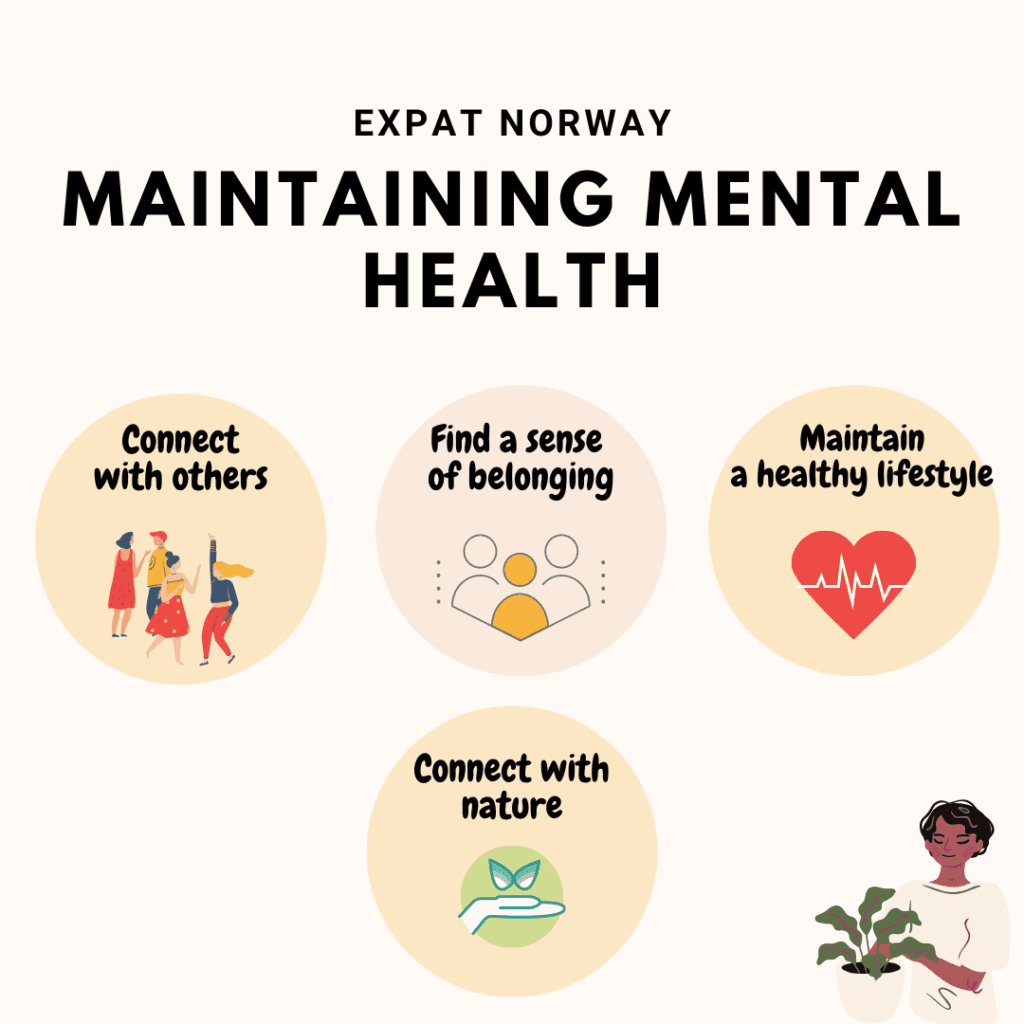By INGA G. GENTILE, licensed psychologist and couples therapist
Being placed on assignment in Norway or relocating for love can be an exciting adventure, but also present its challenges such as loneliness and isolation. In those situations it can be helpful to find a psychologist.
In this article, one of our expat psychologists on staff offer their best advice on how to adjust to life in Norway and, if necessary, how to seek help and support and find a psychologist in Oslo or online.
Is Norway a friendly country?
Out of 65 countries, Norway was ranked as the 48th 'friendliest' country for expats by the InterNations Expat Insider 2021 Survey.
The idea of relocating to Norway can seem especially exciting given Norway's reputation as being a progressive country with beautiful nature, low rates of crime and a generous national public healthcare system.
But as with anything - life in Norway as an expat can also present its challenges at times.
Mental health issues when moving abroad
Living in another country can be a fantastic experience and it can also take a toll on your mental health. In fact, data from a 2016 study indicates that expats face twice the risk for developing mental health conditions such as depression and anxiety compared to their US counterparts who do not move abroad.
Moreover, 90% of expats report experiencing intermittent and at times extended feelings of isolation and loneliness after moving abroad.
Throw in the added burdens associated with living abroad during a global pandemic and many people are longing for home, without any clear way of getting there (or bringing it here).
Pressure on expats relationships
Being an expat in Norway, it can be common to experience feelings of isolation and difficulties adjusting to both the personal and professional aspects of navigating in a different culture, a different language and doing so often perhaps without an established network of family and friends. For partners and families who relocate there can be a range of potentially challenging dynamics.
Relocating as a couple or a family can provide support in that you're not going it alone, however the pressures of all of you adjusting can also put more pressure on relationships. This can exaggerate existing problems and create new ones. At its best, this can become an opportunity for transformation as you get the final push to contact a psychologist, seek therapy or marriage counseling.
Tips for protecting mental health when moving to Norway
- Connect with others. In Norway one way of connecting with others can be through member or volunteer organizations with shared goals and - if you can not join in person consider joining online.
- Think outside of Norway as well - are there online groups, programs or classes you can enroll in that are based other places or in your home country?
- Sometimes spending an hour a week with people living in a familiar culture can feel enlivening. A sense of belonging is crucial to human wellness.
- The basics - sleep, hydration, movement and good food. Decrease screen time and limit alcohol use.
- Connect with Nature. Luckily, Norway has an abundance of opportunities for this.

Expat therapists: When to seek help
Sometimes things can be hard and get better. Sometimes they might seem to stay hard or even get worse. Depression and anxiety are the most common mental health issues that expats face, but having a difficult time does not mean you have a diagnosis.
It does still likely mean you could benefit from self-care routines and seeking other forms of support like therapy or marriage counseling from a psychologist specializing in expats. If you're an expat experiencing a struggle you can not seem to get out of, or if you're a family member who is noticing changes in someone you love there is support to be found.
Where to get therapy for expats?
There are several psychologists in Oslo who are able to speak English and can help. You can also get therapy from a psychologist online.
In Norway you are eligible for public health services free of charge. Speak with your fastlege (primary care physician) and be explicit about what your concerns might be so that you can best discuss what options are available to you.
We have written a complete guide to the different options to get in touch with a psychologist here.
Your primary physician can refer you to the DPS (Distrikts psykiatrisk senter) or therapists in private practice with governmental funding. Waiting times can be long and intake criteria can be strict. If you are a sole provider or a couple with children you can contact the Family protection office.
Check if your company has an Employee Assistance Program or with your insurance company if they cover mental health care services.
If you're a student check if your academic institution or university offer services free of charge at a student mental healthcare clinic.
Use this link to read more about the Norwegian public health care system.
Book a therapy session here
There are also a number of expat psychologists in private practice with little to no wait time. That Psykologvirke we have expat therapists on staff and all our psychologists speak English fluently.
We offer therapy and consultation services to individuals, couples and organizations. You can read more about what to expect if you choose our psychologists for therapy here.
Or you can simply book a session with one of our expat psychologists using here:
We wish you all the best on this strange and sometimes challenging adventure that is called life. We would be happy to contribute in any way we can as your expat psychologists.


